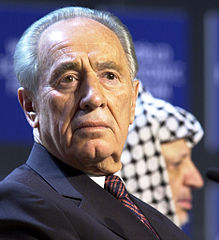Guest Columns
Peace between Israel and Islam? Never

Israeli prime ministers suffer from a pathological fixation on peace, pathological because this fixation is contradicted both by common sense and reason, as well as by bloody historical experience.
Peace and war – competing fixations
Notice that while the word peace dominates the language of public discourse in Israel, war is the fixation of her Muslim enemies. Jews like Bibi (Prime Minister Netanyahu) refuse to act logically with the intellectual recognition that Islam is a warrior creed, a cult of hate, one skilled in taqiyya, the art of deceit and dissembling. Bibi’s strutting on the world stage purveying the “peace process” is a piece of mendacity appreciated only by Muslims, who see this as symptomatic of Jewish weakness.
Bibi does not see that his intoning the word peace induces a democracy like Israel to make more concessions for peace, which in turn requires Israel to purchase more arms from the United States, thereby inclining Jerusalem to scrape and bow to Washington.
Contradictions between Israel and Islam
- Netanyahu refuses act forthrightly with the obvious and insurmountable contradictions between Israel and any Islamic regime. For example:
- Whereas, freedom, including freedom of speech, is one of the two cardinal principles of democracy, Islam is strictly authoritarian, which is why Islamic media are state-controlled.
- Unlike democracy, whose other cardinal principle is equality, Islam is strictly hierarchical. Top-down leadership is a fundamental principle of Islamic theology. Authority runs down from Allah to Muhammad and from Muhammad to the imam, the ruler of the regime.
- Democracy is based on the primacy of consent or persuasion. This adorns democratic societies with a certain easy-goingness and civility. Not only are past grievances readily swept aside, but political opponents can be friends despite their differences. Differences are resolved by mutual concessions, and agreements are usually lasting. In contrast, Islamic culture is based on the primacy of coercion. Agreements between rival factions do not really terminate animosities, which is why such agreements are so short-lived.
- Because democracy is based on the primacy of consent, the pursuit of peace is the norm of democratic regimes. In contrast, because Islamic culture is based on the primacy of coercion, the foreign policy norm of Islamic regimes is intimidation and conquest. Jihad (holy war) is a basic Islamic principle, which is why Muslim violence will be found throughout the world.
- Contrary to democracy, which is based on the primacy of the individual, Islamic culture is based on the primacy of the group—be it the village, or the extended family. The individual Muslim has no identity outside the group; it is to the group that he owes all his loyalty. This is one reason why internecine conflict has been endemic among Muslims throughout history.
Moral relativism v. moral absolutism
- Contemporary democracy is regarded as a process by which individuals pursue their private interests and have diverse values or “lifestyles.” This is not the case of Islam, which binds everyone to the set of substantive values prescribed in the Quran and in Islamic law (the shariah).
- Sadly, contemporary democracy is inclined toward moral relativism, while Islam is based on absolutism. Thus, whereas contemporary democracy conduces to tolerance, Islam conduces to intolerance. Admittedly, Islamic regimes tolerate non-Islamic minorities, but only as dhimmis – virtual pariahs.
- Democratic societies are preoccupied with the present (the Now). Conversely, Islamic culture exists under the aspect of eternity. Islamic mentality is dominated by the past, which is why revenge for past injuries is a dominant motif of the Islamic world. And given their group loyalty, Muslims are religiously bound to wreak vengeance against those who have slighted the honor of any Muslim.
- The openness or publicity found in democracy stands in striking contrast to the hiddenness, secrecy, and dissimulation (taqiyya) characteristic of Islam. As one intellectually liberated Muslim sociologist writes about Arabs: “Lying is a widespread habit among the Arabs, and they have a low idea of truth.”
- Contrary to contemporary democracy, which is rooted in a mild secularism, Islamic culture is rooted in a harsh religion. Even Arab leaders who are not devout Muslims identify with the basic goals of Islam. The radical separation of religion and politics found in democracy is foreign to Islam.
Respect or disrespect for human life
- Whereas democracy – before its corruption by moral relativism is rooted in the Judeo-Christian concept of man’s creation in the image of God (Genesis 1:26), Islamic theology rejects that concept as blasphemous.
- Consistent with Genesis 1:26, democracy affirms the moral unity of mankind, while Islam reduces non-Muslims to apes and dogs.
- Democracy extols the primacy of reason. Islamic theology exalts the primacy of will. Hence, it was not inconsistent with the unqualified or absolute omnipotence which Islam attributes to Allah, that the Taliban should proclaim: “Throw reason to the dogs—it stinks of corruption.”
The preceding facts demonstrate that Islam and democracy are utterly irreconcilable. These facts will not be conveyed by professors seeking tenure or by politicians seeking election or by journalists on The New York Times or on The Jerusalem Post. Hence, these facts do not modulate the language of public discourse.
As a consequence, it is not widely understood why peace between Israel and Muslims in the so-called West Bank, i.e., Judea and Samaria, is impossible. Hence, it will not be understood that PM Netanyahu’s “Yes” to Palestinian statehood amount to “political correctness” or intellectual dishonesty.☼
-

 Civilization3 days ago
Civilization3 days agoWhy Europe Shouldn’t Be Upset at Trump’s Venezuelan Actions
-

 Executive4 days ago
Executive4 days agoHow Relaxed COVID-Era Rules Fueled Minnesota’s Biggest Scam
-

 Christianity Today3 days ago
Christianity Today3 days agoSurprising Revival: Gen Z Men & Highly Educated Lead Return to Religion
-

 Civilization4 days ago
Civilization4 days agoThe End of Purple States and Competitive Districts
-

 Executive4 days ago
Executive4 days agoWaste of the Day: Can You Hear Me Now?
-

 Executive5 days ago
Executive5 days agoWaste of the Day: States Spent Welfare in “Crazy Ways”
-

 Civilization2 days ago
Civilization2 days agoDeporting Censorship: US Targets UK Government Ally Over Free Speech
-

 Executive2 days ago
Executive2 days agoWaste of the Day: Wire Fraud, Conflicts of Interest in Connecticut











